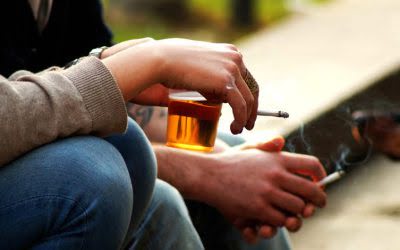Tips for Dealing with Triggers in Recovery
Cravings come and go, so if you don’t know where to buy drugs, you will be over the craving long before you think of a way to find a drug connection again. If a former drug user used to meet their dealer at a particular corner gas station, that gas station may become a powerful trigger. Overconfidence in recovery can be dangerous, as it can lead to a false sense of security, making you more likely to take risks and https://www.la-nouvelle-generation.com/mercy-community-healthcare.html eventually relapse. It’s important to remain conscious of the fact that addiction is a chronic illness, and relapse is always a possibility.

How to Help Someone Who is Experiencing a Relapse
As a result, individuals with unchecked triggers can cope in harmful ways, foster unhealthy relationships, and endure much suffering. Being able to identify triggers and https://www.sparrowhawkind.com/substance-abuse.html utilize coping strategies are two beneficial ways to handle triggers and stay strong in your recovery. Others turned to substance use because of boredom or to enhance pleasurable experiences. An external trigger is a person, place, or thing that brings back an intense memory of drug use.
People Trigger Relapse
- The stressed rats’ responses to the trigger mirrored those of people during relapse.
- Every one of our team members is certified to address and effectively treat the issues that come along with addiction.
- But recovery is a journey, and there are many other tools in treatment that can support your sobriety.
- Triggers are easily identifiable by the way someone reacts to something.
In this article, we will discuss internal and external triggers for addiction. We will also provide some examples of internal and external triggers, including emotional triggers in recovery. Recognizing and addressing these common relapse triggers allows for proactive management, thus reducing the likelihood of reverting to substance use. Every individual in recovery from a drug or alcohol addiction needs to work each day to keep their sobriety.
- Such feelings can include celebratory feelings, passion, and excitement.
- External triggers are particular locations, activities, things, people, places, objects, situations, smells, tastes, images, and events that make the person want to drink alcohol or use drugs.
- The earlier people in recovery can identify and successfully respond to triggers, the greater their chances of prolonged abstinence.
- Learning to identify and cope with triggers is a popular strategy for the treatment of several problems—especially anger and addictions—because of the effectiveness and intuitiveness of the approach.
- By proactively addressing emotional turmoil, you can maintain your sobriety and continue on your recovery journey.
Most Common Triggers for Relapse and How to Avoid Them
Some use trigger warnings to give students time to physically or mentally prepare for potentially distressing subject matter, such as physical or sexual violence. When triggered, the brain might interpret past traumatic events as current. This causes the body to experience symptoms as it did in response to the original trauma (such as the fight-or-flight response). Some researchers believe that the brain stores memories from a traumatic event differently from memories of a non-traumatic event. Triggers vary widely from person to person and can be internal or external.
- Healthier practices need to replace these negative internal processes in order to help people succeed in their path to a substance-free life.
- For example, they can end relationships with certain people, purposefully avoid certain places, or not attend an event where a particular person will be.
- A study of rats by the University of Michigan found that the rats largely preferred rewards that triggered the brain’s amygdala, part of the limbic system that produces emotions.
- Each time a person is triggered is a learning opportunity that can help manage reactions in the future.
- Unfortunately, the nature of emotional or mental triggers can run very deep and can be traumatizing.
Therapy

Ask those you trust to help remove any triggers from your space, such as medication or alcohol bottles. Learning tools to manage triggers can make a big difference in how you respond to — and ultimately cope with — them. If this is a medical emergency or there is immediate danger of harm, call 911 or visit a hospital emergency department and explain that you need support for a mental health crisis. Triggers can cause individuals to develop a “flight or fight response.” Since this reponse can cause great distress and anxiety, it is often suggested for those struggling to get help. The ideal situation for a person in long-term recovery is that they reach a point where they no longer know where to get their drug of choice.
Our comprehensive treatment programs integrate evidence-based therapies https://oval.ru/ars/083079084.html and mindfulness practices to help individuals identify their unique triggers and develop strategies to avoid or manage them. An addiction trigger is any stimulus that causes an urge or craving to use substances. These triggers can be emotional, environmental, or social and may vary greatly from person to person.
